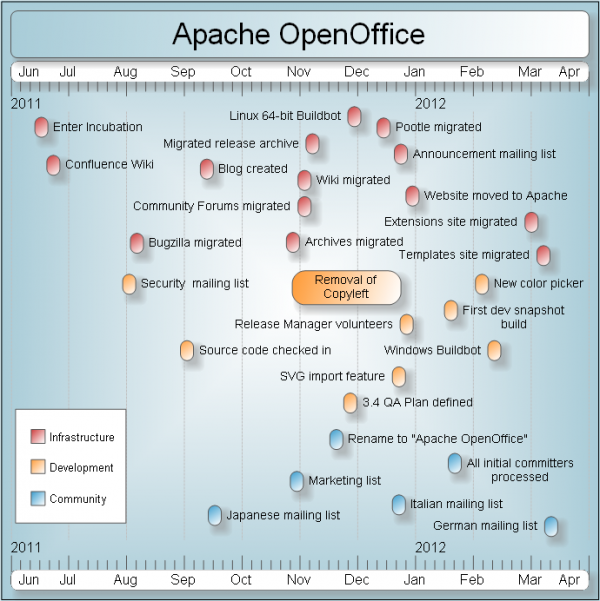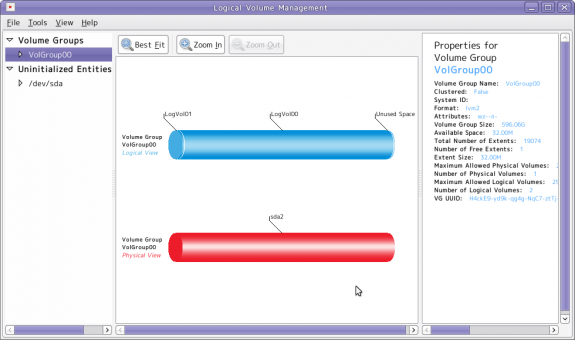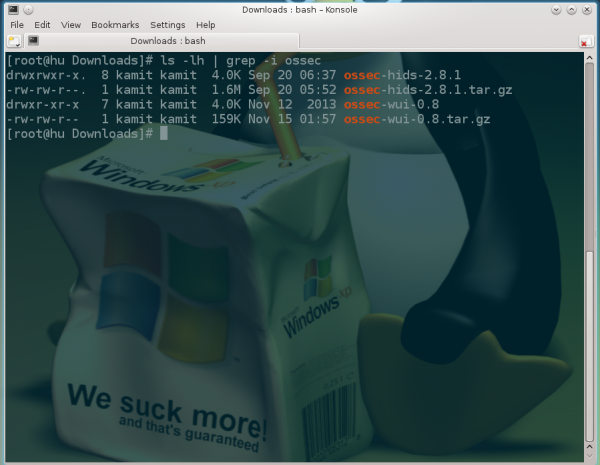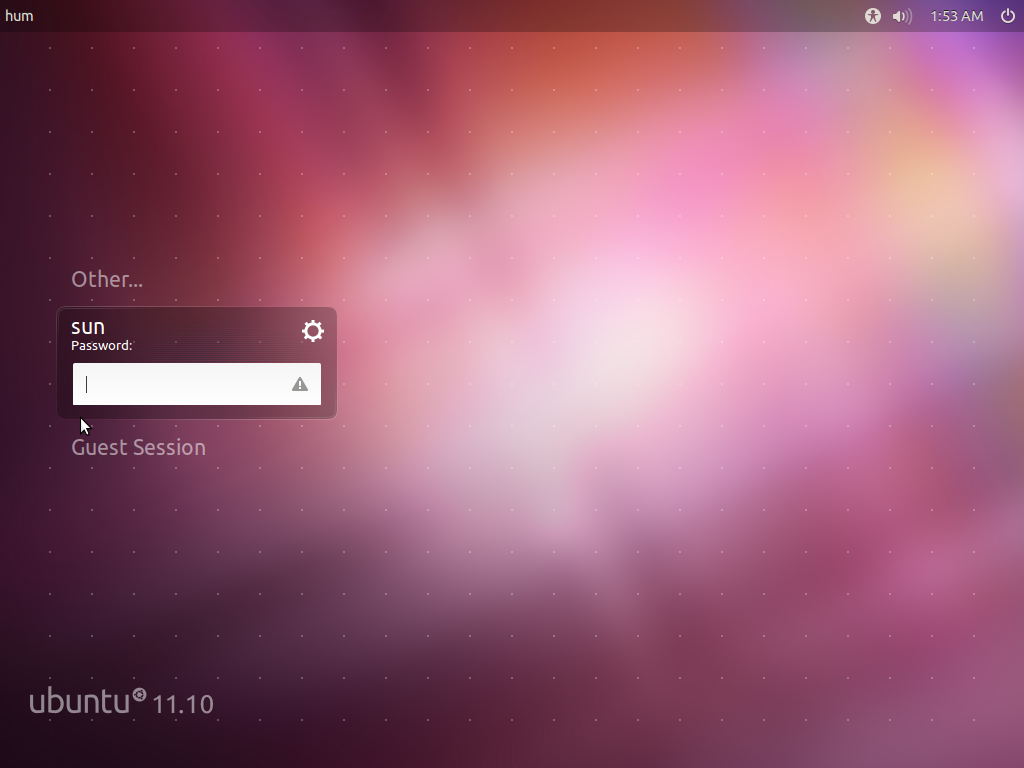Not too long ago, many, yours truly included, thought that OpenOffice was dead. That opinion was informed by the decision the major Linux distributions made to replace OpenOffice.org, as it was known at that time, with LibreOffice, the new office suite forked from OpenOffice.org by its former contributors.
If this is all news to you, here is a brief recap of what happened. OpenOffice.org was a Sun Microsystems-sponsored project. It was, then, the most popular office suite, as it was pre-installed on almost all Linux and BSD desktop distributions. Then something happened. And that “something” was the acquisition of Sun Microsystems, Inc. by Oracle Corporation.
Oracle’s history of not caring too much about Free Software led several contributors to fork OpenOffice.org. And that is a very brief account of how LibreOffice came to be. Not knowing what to do with OpenOffice.org after most of the contributors left to join The Document Foundation, which oversees the development of LibreOffice, Oracle donated OpenOffice.org to the Apache Software Foundation (ASF) on June 1 2011.
Since then, the ASF has been working behind the scenes to take over complete control of the project’s development. It has since been renamed to Apache OpenOffice. So what exactly has the ASF been doing? The following graphic, published in a blog post here, provides a clue.

It is doubtful that the major Linux distributions will reverse course and pre-install Apache OpenOffice when it is finally released, but that will not stop individuals from installing it on their systems. Ultimately, usage and adoption will be driven by features. Back in July 2011, IBM donated Lotus Symphony code to Apache OpenOffice, so that should add some UI improvements.































So exactly where does that leave current users of Open Office_3.2 … those cautious individuals running U_10.04LTS?
We want NO “CLI-hoop-jumping” to stay with Apache Open Office as it evolves. An **UPGRADE** button is just about right!
“Oracle’s history of not caring too much about Free Software led several contributors to fork OpenOffice.org. And that is a very brief account of how LibreOffice came to be.”
Oh really? That´s not true at all. Read Mr. Shuttleworth´s comments at http://ho.io/libreoffice
Also, Oracle “not caring abonut open source” must be why they keep investing into MySQL, open source Java (OpenJDK – they´re hiring more devs as of last week), NetBeans, Glassfish, and Virtualbox (all GPL).
Must also be why Fedora 18 and other Linuxes now include BTRFS, developed AT ORACLE, and merged into the mainstream Linux kernel, which puts Linux on equal footing as Microsoft´s upcoming ReFS in Windows 8 Server.
Let´s cut the FUD and the BS please. The LO fork was inspired by a band of fundamentalist devs that opposed OpenOffice-StarOffice dual-licensing model that required SCAs (Sun Contributor Agreements) so that Sun (and then Oracle) could build a commercial release (StarOffice) on top of OpenOffice.org code.
That army of fundamentalists was (is) led by Novell´s Michael Meeks. Remember who made the first major fork to OpenOffice: Novell, with its ill-fated “Go-OO”.
It was Novell, too, which signed patent deals with Microsoft (something Red Hat refused to do), and it was Novell which insisted on creating patches to make OO.o “better support” Microsoft´s ugly MS-OOXML file formats.
Sun was right in telling Novell to go hug a tree wrt their MS-OXML promotion.
Read this: http://ho.io/libreoffice
FC
I’m sure that you are aware that a guy could be hugging you while stabbing you in the back at the same time. Did you also read that Microsoft, yes, Microsoft, also contributes to the Linux kernel?
It will be interesting to see where this ends up taking Libre Office.
I have been using Open Office, and of course later Libre Office, for years. For a lot of things, it does an awesome job, but due to non-standard document types, yes looking at MS Office, there are somethings it does poorly.
I would love to see Libre Office, or open office, at least get as good as Google Docs at parsing out these tricky formats, like docx.
While fragmentation can suck sometimes, it can, like David alluded to, also make everyone have better code. So, I look forward to seeing how this benefits Open Office/Libre Office!
From what I’ve heard, LibreOffice will be able to cherry-pick code (and thus features) from OpenOffice, but the reverse won’t be true, because including copyleft code is contrary to Apache’s policy and licensing terms. Do you know if that’s true?
Yup its true.. Its just the nature of the Apache license that allows code contributors to not give back to the community, and the nature of LGPL licence (the license that libreoffice uses) to mandate users to commit new developments back to the mother project
Permissive vs Restrictive?
I have my vote on the latter.